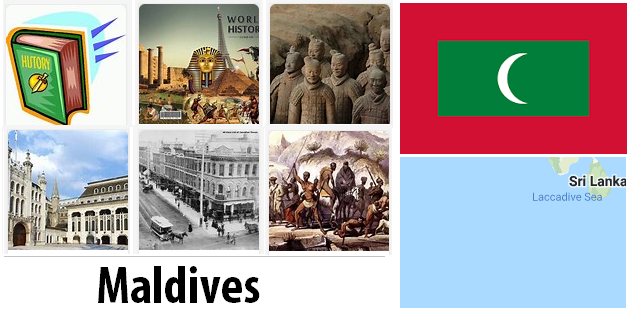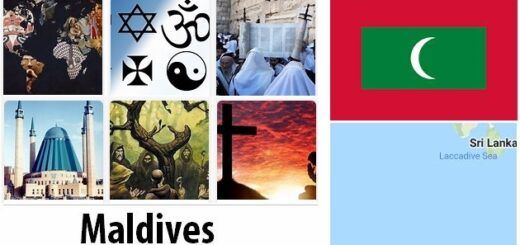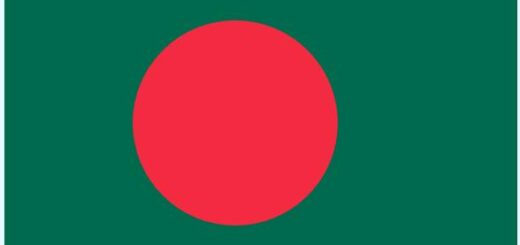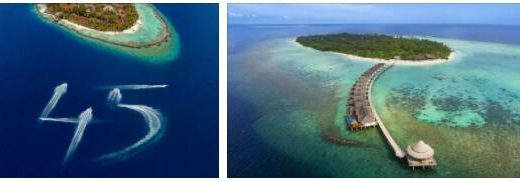Maldives Recent History
An autonomous sultanate within the Commonwealth is the recent one, from 1965, of the Maldives islands, with the capital Malè. According to Abbreviationfinder, an acronym site which also features history of Maldives, the era of the first immigrations to the islands is unknown, but the somatic characteristics of the current populations are evident. So, for the southern part of the archipelago, the natives are descended from the immigrants of Ceylon; for the northern one by people of southern India and as regards the central part, there are still evident signs of Arab lineage. The contacts of these peoples are sure both with the West and with Malaysia. And depending on their stock, the natives have maintained some peculiarities such as the warrior soul and the seafaring one.
For all the influences received, the Muslim religion expanded and the Sinhalese language was affected by an Arabic imprint.
The archipelago, ruled by Arab chiefs, was the subject of invasion by the Portuguese in the 16th century, but then fell into the hands of some Malabar pirates, coming from the coasts of southern India. In the mid-seventeenth century the islanders accepted the sovereignty of Ceylon.
In 1932 the islands benefited from a Constitution which allowed the election of a Popular Assembly, consisting of 33 members and a Cabinet made up of 4 ministers, headed by a Prime Minister chosen by the Sultan.
From 1946 to 1948 they were directly dependent on Ceylon, then they became an “autonomous dominion” in the orbit of the British Commonwealth, by means of a Statute of 1948, with which the obligation of the defense and maintenance of foreign relations of the islands. All this managed through a High Commissioner at Ceylon.
In December 1952 the Sultanate was abolished and on January 1, 1953 the republic was proclaimed whose president was Amir Amin Didi.
In September of that same year Didi was exhausted, the republic was abolished and on February 22, 1954 the Sultanate was restored.
On February 1, 1960, the Maldivian government ceded the islands to Britain for 30 years; but a few days later, on February 14, this agreement was replaced by another which sanctioned the independence of the country, without prejudice to the task of defense and foreign relations by Great Britain.
The complete independence of the archipelago was obtained on July 26, 1965. However, the British remained the naval base of Gan until 1968, the year in which the country became a Presidential Republic, whose president was Amir Ibrahim Nasir, premier Ahmed Zaki. The latter, on March 7, 1975 on charges of bad governance was deposed and exiled by Nasir who, as a result, also assumed the position of head of government.
The country adopted the policy of non-alignment and therefore refused the Soviet offer of one million dollars in exchange for renting the previously British naval base in Gan.
In November 1978, MA Gayoom, former transport minister, came to the office of President. He wanted to apply greater democracy in the government of the country which until then had always been in the hands of a few privileged elements. This is why some prominent businessmen attempted a coup that failed. And in September 1983 the president was confirmed in office.
A third confirmation was made in September 1988 but two months later Gayoom was once again the object of a coup and had to escape by taking refuge in a secret and safe place. From here he made a request for help to the United States, Great Britain and India. And it was R. Gandhi who succeeded in foiling the coup and reviving Gayoom in November 1992, who officially declared his candidacy for the subsequent elections of 1993.
And once again MA Gayoom was confirmed as president and the political situation in the country was stable and free of change, as political parties are absent.
However, a lot of work was done in the economic field; production activities were diversified, the focus of which was undoubtedly fishing; foreign investments were favored, especially in the tourism sector which, given the particular beauty of the islands, the clean sea, the welcoming climate, had a remarkable development.
Particular attention was gradually placed on the defense of the environment deemed threatened by a possible increase in sea level, caused by the greenhouse effect.
Meanwhile, in September 1998 Gayoom had a new confirmation to the Presidency with an almost plebiscite result of 80% of the votes.




